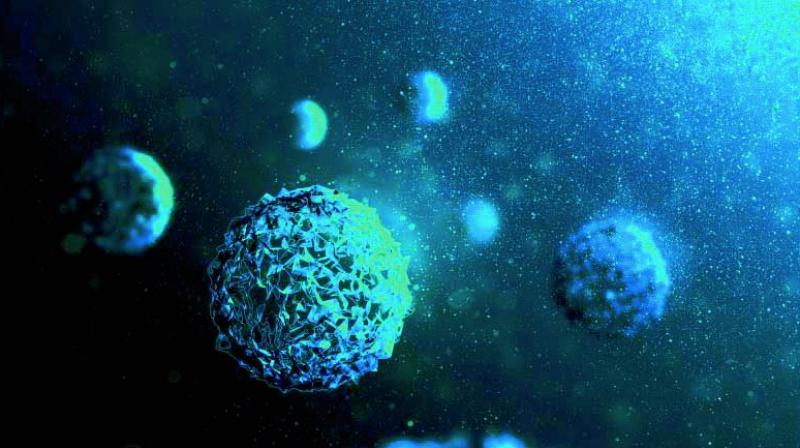Raining diseases
Monsoon is the time a cup of hot tea with spicy savouries. But sadly, it is also time for waterborne diseases.

The monsoons are here. And in most parts of the country, it’s lashing down flood-like rains. Of course, this part of the subcontinent has seen a delayed onset of monsoon, but while it rains heavily some days, it is dry on other days. Once again, it is that time of the year flipping between sudden changes in the temperature from very hot to very cold, when waterborne diseases are on free flight.
Dr G. Navodaya, consultant, general medicine diseases, explains the dangers of the weather change and suggests ways to exercise caution in these circumstances.
How does the switch from extreme heat to sudden rain and then no rain affect the human body?
The sudden drop in temperature from extreme hot to extreme cold can produce ill effects in the human body, leaving serious effects especially on those with a history of cold-related disorders. The sudden and extreme variance between the outside and inside temperatures can adversely affect a person as the body undergoes stress when it’s forced to adjust to a changing environment.
For one, it dries off your skin, the mucus membrane and the eyes, causing eye infections, respiratory infections and muscular spasms. And it can exacerbate coronary heart diseases. Vascular cardiac, vascular brain diseases and peripheral vascular (artery and vein) diseases are also caused by this change in temperature.
The temperature change could also lead to asthma attacks, runny noses, muscular pain, flu, pharyngitis, sinusitis, cold, sore throat, muscular aches and severe pains, all of which are mostly the result of the use of air conditioning during hot weathers. For this reason, the recommended air-conditioning temperature is between 23°C and 25°C. This will prevent one’s susceptibility to ailments and ensure healthy living. In fact, it is better to switch off the air conditioners when possible and avoid being exposed to low temperatures.
The onset of monsoon this year has been very late and in some of the southern regions, there have not been any rains? How does the climate change affect people?
Extreme weather events cause a shift in vector-borne diseases, which affects human health. These effects could include the onset of infectious diseases such as malaria, chikungunya and other waterborne illnesses. So also, monitoring the spread of infectious diseases is important. The occurrence of dengue, for instance, can be reduced by making changes in household water-storage practices and surface-water pooling.
Flooding and high levels of water during rains also cause rodent-borne diseases, including leptospirosis, tularaemia and some viral haemorrhagic diseases. Other diseases associated with rodents and ticks, which show associations with climatic variability, include Lyme disease, tick-borne encephalitis and Hantavirus pulmonary syndrome.
Rains in the tropics also cause a peak in diarrhoeal diseases. And though diarrhoeal diseases vary seasonally, suggesting sensitivity to climate, the risk of contracting these diseases are high during both floods and droughts. Major causes of diarrhoea linked to heavy rainfall and contaminated water supplies are cholera, cryptosporidium, E.coli infection, giardia, the shigella infection, typhoid and viruses such as hepatitis A.
Are diseases caused owing to the sudden changes in climate in areas that have seen too much rainfall?
Climate change does influence the start of diseases. In part, the abundance of dengue vectors depends on the availability of breeding sites, primarily containers such as drums, discarded tires and leaf axils that are filled with water either manually or because of the rainfall.
What precautions do people who frequently travel to different parts of the country from one weather condition to another need to take?
Such people have to work towards reducing their chances of falling sick or getting injured while traveling. They can follow these tips:
- Prevent mosquito and other bug bites
- Wear long-sleeved shirts and long pants when outdoors at night in areas vulnerable to the spread of malaria
- For greater protection, spray their clothing with repellent containing permethrin or any other registered repellent
- Be careful about the food and water they take
- Wash hands often with soap and water, especially before eating or preparing food and after coughing, sneezing or using the bathroom
- Avoid tap water, fountain drinks and ice cubes
- Limit intake of alcohol

